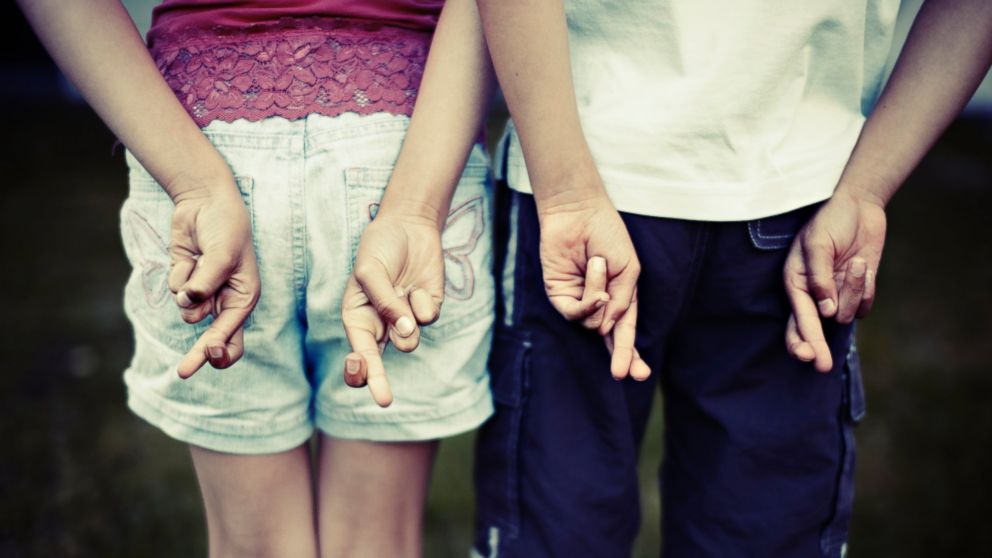The Science Behind When and Why Children Learn to Lie
There are important reasons why almost everyone learns to lie, experts say.

— -- Most parents spend years trying to teach their children not to lie and that lying is bad, but virtually everyone learns to lie. To understand why this happens, experts have spent decades looking into the science of lying.
Michael Lewis, a distinguished professor of pediatrics and psychiatry at Rutgers Robert Wood Johnson Medical School, says that in spite of what our parents told us, lying isn't always a bad thing and that there are important reasons almost everyone learns to lie.
"Lying is a basic process that gets us into imagination and into play and into creativity," he explained.
To mark April Fools' Day, ABC News' HealthLab is investigating the science behind lies and deception with a live-stream event dubbed Lie-Day Friday, starting at noon, featuring everyone from neuroscientists to private investigators and a physician-magician.
Lewis has been studying how and why children lie for decades. He said he's identified four major types of lies: lying to protect the feelings of others, lying to protect yourself, lying to yourself and lying to hurt others. Of the four, he said only lies designed to actually hurt others seems to be a "bad" kind of lie.
From his medical research results he said children will start to lie when they're still toddlers when they pick up cues from their parents. Lewis said even the most honest people will lie "all the time." He pointed out people often lie when asked "How are you doing?" or "Do you like the food?"
"Lying you can see in children as young as 2 and a half and 3 years of age," Lewis said. "You have to remember that adults lie all the time."
He said children quickly pick up on lying when parents tell them to come forward if they did something wrong. Lewis said the children find out quickly they're still in trouble even if they don't lie about it.
"Children quickly learn that to avoid telling the truth," Lewis said. "The children who are more emotionally stable, these are the ones who are likely to lie than to tell the truth."
Lewis said parents will often instruct children to lie to protect the feelings of, say, a gift-giver who gives something the child doesn't want.
He says self-deception can actually be a key component of imagination for children. While in certain cases ignoring important information -- such as a medical issue -- can be hurtful, many children can benefit by lying to themselves, Lewis said.
"[By] 2 years of age, children are capable of engaging in pretend play, which means they know what is real and they can pretend that it’s different than reality," Lewis explained. "You lie to yourself and at the same time you know you’re lying to yourself."
Even lies to protect oneself seem to be a normal part of development, Lewis said. In one experiment he performs, the researcher leaves a child along with a box and tells them not to look inside if they want a toy. They then leave the room and watch through cameras to see if the child looks at the toy.
When they later ask the child if he or she has looked inside the box, usually around a two-thirds of children under age 5 will lie, Lewis noted. By the time they are around 7, that number goes up to 90 percent. But this isn't necessarily a bad thing, Lewis said, because it indicates emotional intelligence.
"Children who have emotional knowledge ... they lie," said Lewis, noting that young children who lie in the experiment are estimated to have a 10 point higher IQ compared to children who tell the truth.
Expecting children to be truthful all the time is unrealistic, Lewis said, noting that lying is part of how we interact with those around us.
"All these lies are going on in the adult world and the child has perceptions of what’s going on in the adult world," Lewis said. They "are learning these kinds of rules."
Good luck staying a step ahead of the pranks and trickery this April Fools' Day -- and don’t forget to tune in to Lie-Day Friday, streaming live beginning at noon today.



